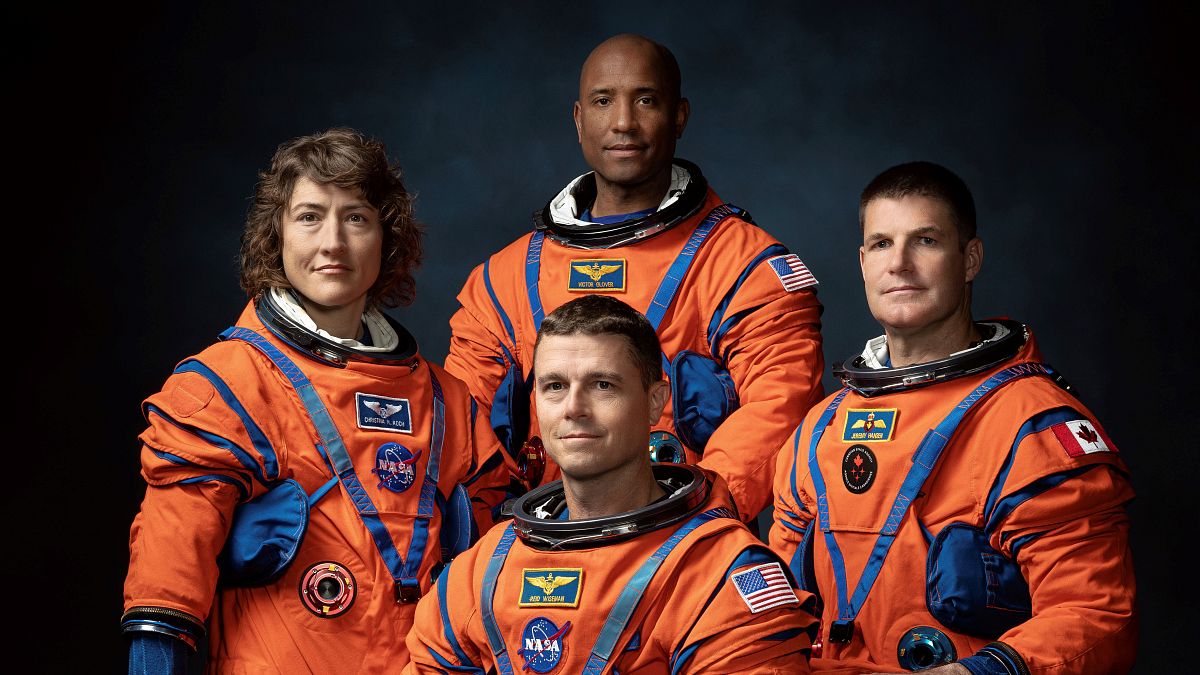The last time humans flew to the Moon was in 1972. This time around, a female and a Black astronaut will be part of the crew.
NASA has announced who the next four humans will be to fly around the Moon, in the next leg of the Artemis mission launching next year.
They include the first woman and the first Black astronaut to travel to the Moon.
More than 50 years since the last mission to the Moon, the next team of astronauts to go includes three US astronauts and one Canadian.
They will be the first astronauts to fly in NASA's Orion capsule, which will be launched by NASA's most powerful rocket, the Space Launch System (SLS).
Late last year, the SLS fired an unmanned Orion capsule to the Moon, with the spacecraft conducting a flyby and returning safely to Earth, in a hotly anticipated - and much-delayed - test flight.
The last crewed mission to the lunar surface was Apollo 17 in 1972 - part of the Apollo series of missions in which 24 astronauts were sent to the Moon from 1968 to 1972. Twelve of those astronauts landed on the lunar surface.
'Humanity's crew'
The crew for the first manned Artemis mission was announced at a ceremony in Houston, Florida, home to the US's astronauts as well as Mission Control.
NASA Administrator Bill Nelson introduced them, saying: “This is humanity's crew".
The mission's commander is Reid Wiseman, who served as Flight Engineer on the International Space Station in 2014, completing a 165-day mission.
He will be joined by Victor Glover, an African American naval aviator, whose last mission was as pilot and second-in-command on the Crew-1 SpaceX Crew Dragon, named Resilience, which reached the space station in 2021.
Christina Koch will be the first woman to travel to the Moon. She's also the record holder for the longest spaceflight by a woman.
Canada's Jeremy Hansen, a former fighter pilot, will be the only rookie on board - having never flown a space mission before.
The four astronauts will be the first to fly NASA's Orion capsule, launching atop an SLS rocket from Kennedy Space Center no earlier than late 2024.
They will not land or even go into lunar orbit, but rather fly around the Moon and head straight back to Earth, a prelude to a lunar landing by two others a year later.
All the astronauts are in their 40s.
“This is a big day. We have a lot to celebrate and it’s so much more than the four names that have been announced," Glover said.
This is the first Moon crew to include someone from outside the US. Provided this 10-day moonshot goes well, NASA aims to land two astronauts on the Moon by 2025 or so.
“Am I excited? Absolutely,” Koch said to cheers from the crowd of schoolchildren, politicians and others. “But my real question is: ‘Are you excited?’ ” she said to more cheers.
The Canadian Space Agency claimed a seat in the spacecraft because it contributed big robotic arms on NASA's space shuttles and the space station. One is also planned for the Moon project.
Hansen said he's grateful that Canada is included in the flight.
“We are going to the Moon together. Let’s go!” he said.
Congratulations streamed in from retired astronauts, including Apollo 11’s Buzz Aldrin and Scott Kelly, the first American to spend close to a year in space.
“Huge risks, huge commitment, eternal benefits for all. What a crew!” tweeted Chris Hadfield, the first Canadian commander of the space station a decade ago who performed David Bowie’s “Space Oddity” from orbit.



